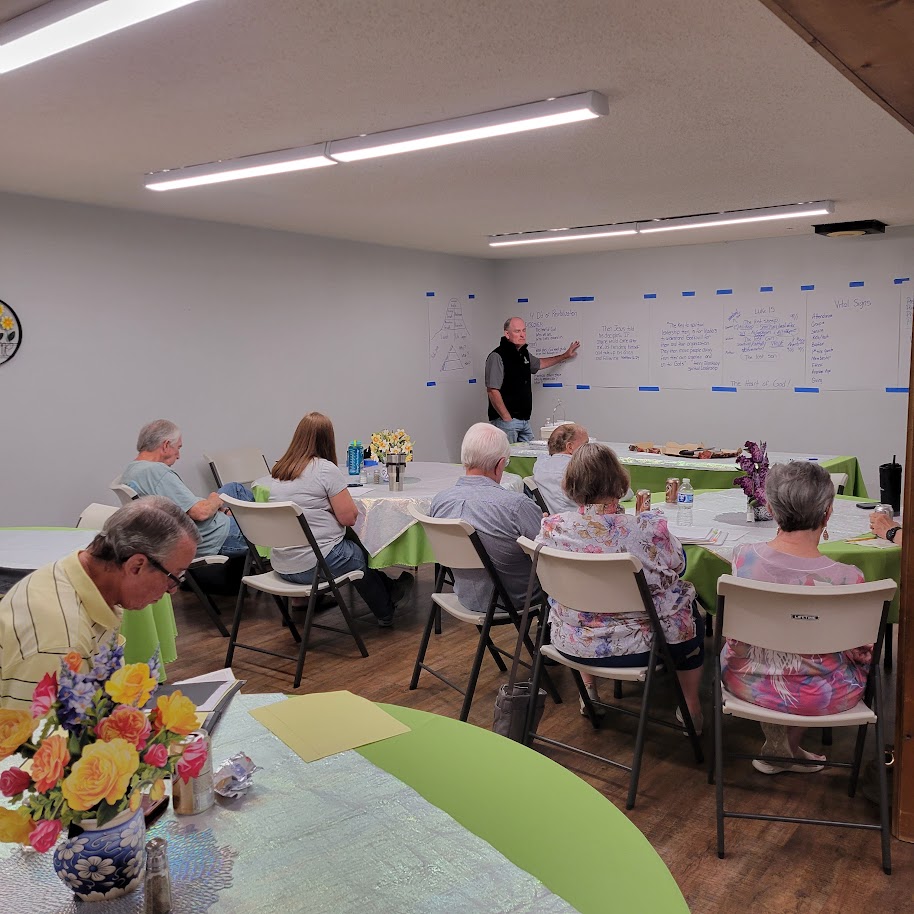
One of the roles of the Renew Montana Network is to help churches assess their spiritual health. Our measurement tool is designed around nine indicators of spiritual maturity. There are three identities (worshipper, family, missionaries), three foundations (gospel, scripture, prayer), and three structures (leadership, membership, discipleship). Each of us must be continually renewed in each of these areas. Are you willing to take an honest look at the spiritual condition of your church? You do not have to enter our formal process. You can find 72 targeted questions here: Church Health Assessment
You can also take a condensed version of the survey with just nine questions to get to the heart of the matter. The data and feedback will be illuminating. Mark Hallock, who serves with the Calvary Family of Churches and the NAMB Replant team says, “Most churches do not recognize their spiritual condition. We become nose-blind to the true health of our church. He asserts, a recognition of reality is the key to taking steps to spiritual health.” I agree.
Take a moment to answer each of the following on a scale of 1-10. These questions can have broad application, so definers are given. To give this survey some depth, give an example to qualify the number you gave for each question. Then, give an example of why the number was not higher.
_____ Our church consistently experiences the joy of the Lord.
Worshipper: The mark of a maturing believer is the sweet and satisfying presence of God, no matter the circumstances. It is sustaining and reviving to the soul. This is the key to fruitful living and perseverance.
_____ Our church has unity among one another.
Family: The disfunctions of unforgiveness or jealousy are not prevalent in the church. The mission of the church is clear, and each member is committed to achieving collective goals. The church experiences biblical community and a love for the saints. There are not power struggles.
____ Our church has compassion for the world.
Missionary: We consistently serve the community in practical ways and allocate resources to expand God’s Kingdom. We consistently build relationships with lost people and share our faith. We welcome people into our homes and to church. We are active in sending believers on mission.
____ Our church believes in the hope of the gospel message.
Gospel: The gospel message is central to every gathering of the church. Testimonies are consistently shared of the power of the gospel. The church trains believers to share the gospel. Believers are comfortable sharing the gospel.
____ Our church is submitted to the authority of Scripture.
Scripture: Believers offer confession of sin. Believers seek reconciliation with others. Believers have humility and gentleness. Believers are generous and compassionate. Believers allow Scripture to shape their marriage and their parenting.
____ Our church demonstrates a dependency on God through prayer.
Prayer: The church prays together at each gathering. The church prays for the lost. The church prays for their pastors and church leaders. The church seeks the Lord in direction and planning. Believers often pray over one another. Testimonies of the power of prayer are often shared.
____ Our church is self-governing.
Leadership: Our leaders are marked by wisdom and cooperation. Jesus is the authority of the church. We see Jesus in the actions and attitudes of our leaders. We have deacons who serve the needs of the church family. We intentionally develop new leaders in all areas of the ministry. Each leader mentors and trains others to serve.
____ Our church is self-sustaining.
Membership: Our members take responsibility for the mission of the church through giving and participation. We have a process to add new members to the church. The church is a covenant community, and each member is held accountable.
____ Our church is self-replicating.
Discipleship: We intentionally disciple new believers. We have a process to encourage every believer to take steps toward spiritual maturity. We consistently identify and train new discipleship leaders. We begin new discipleship groups on a regular basis. We call out the called to become pastors and missionaries.
Now, as a leader, ask yourself. Is our church on the incline, recline, or decline? A church on the incline is taking steps forward. They intentionally address areas of vulnerability and look to expand the impact of their church in the community. A church in recline is coasting. They are satisfied with where they are and become inward focused. They are comfortable with their programs and traditions. This will last for a season. A church in decline is one who has failed to address their spiritual health. They often focus on the past and cast blame on others. They are unwilling to change or share leadership with the next generation.
So, where do you begin? Spiritual renewal and church revitalization begin with a deeper dependence upon the abiding presence of the Lord. There are no short cuts. As God’s people seek His face and listen to His voice, we respond to Him with repentance, obedience, and faith. This is where it begins. As God renews the heart of His people, He will restore our passion for Him and our Kingdom purpose. As we recover the heart of God for the lost, He will compel us to pursue the right priorities and convict us to live with purity. Our Renew Montana Network is praying with you, and we stand ready to walk beside you.

